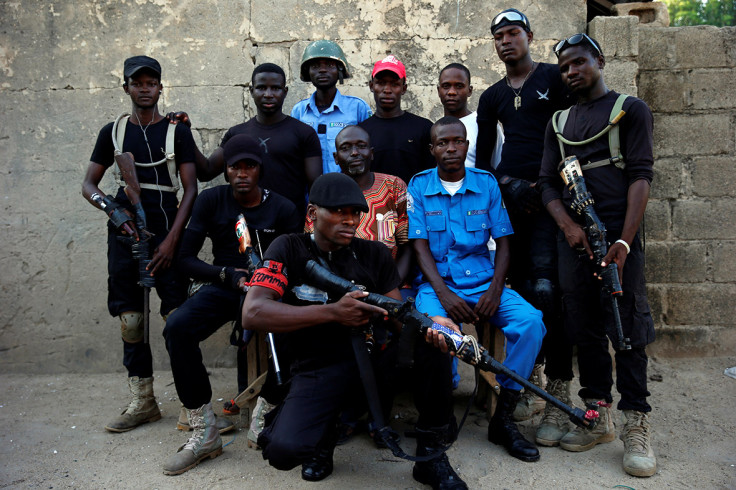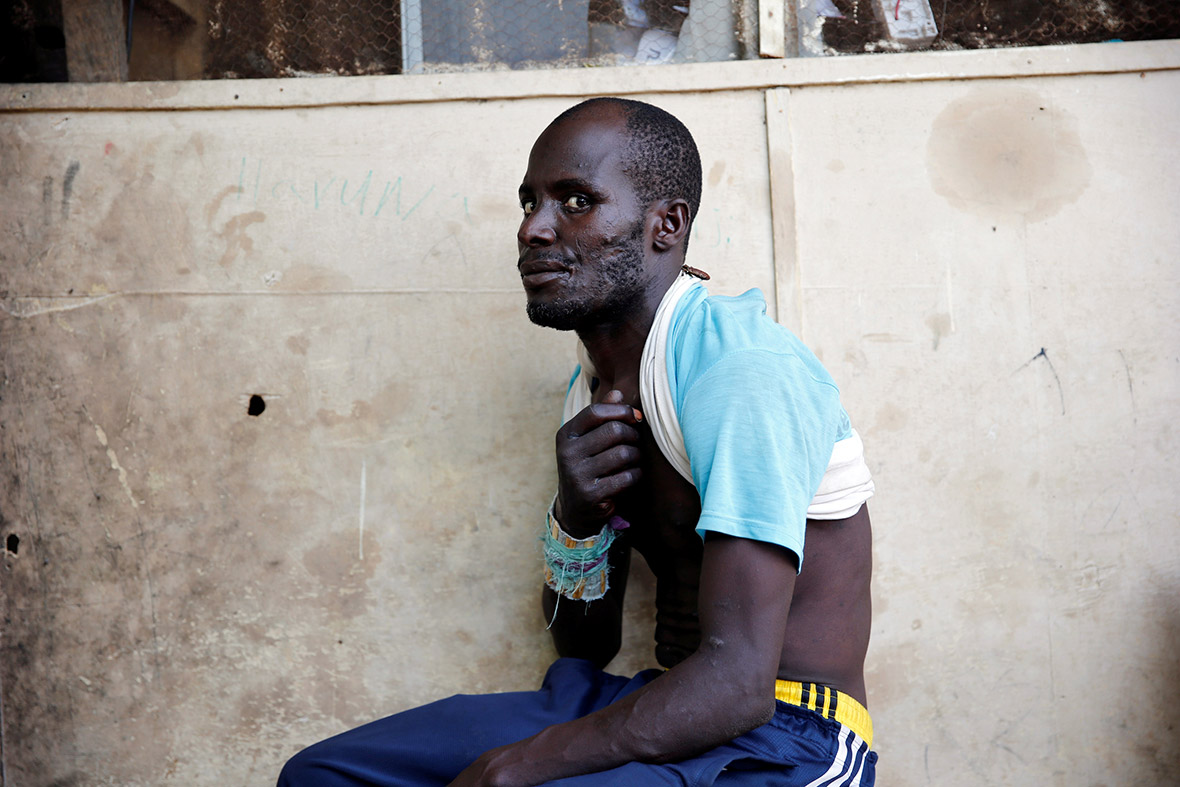What now for Nigeria's volunteer vigilantes fighting Boko Haram with muskets and bows and arrows?
The CJTF helped to turn the tide against Boko Haram, but their presence now casts a shadow over longer-term efforts to bring stability to the troubled Lake Chad region.
Volunteer vigilantes using machetes, rudimentary shotguns and bows and arrows helped to turn the tide against Boko Haram in northern Nigeria, but their presence now casts a shadow over longer-term efforts to bring stability to the troubled Lake Chad region. The 30,000-strong Civilian Joint Task Force (CJTF) was founded in Maiduguri in 2013 by men who decided they had had enough of the Islamist militants living in their midst.

Dala Aisami Angwalla, aged 38, says he is undaunted by two nearly fatal brushes in the last year with Boko Haram, one involving a landmine, the other an ambush, and is determined to rid northeast Nigeria of the jihadists. His broken arm is in a bamboo splint, his torso pock-marked with shrapnel and his jaw wired together by a Nigerian army surgeon.


"Why do I do it? Because it's my country," the father-of-five told Reuters in Maiduguri, the capital of Borno state and epicentre of Boko Haram's bloody, eight-year campaign to build an Islamic caliphate in the southern reaches of the Sahel. "My children are OK. When I go out, they say 'Go well, father. May God keep you safe,'" he said, fingering a charm around his neck that he believes keeps him from harm's way.
The vigilantes' bows and arrows, cutlasses and homemade rifles were little match for Boko Haram's modern weaponry, mostly captured in raids on Nigerian army and police positions, but their local knowledge was decisive.


Hundreds of suspected militants were detained by soldiers and police acting on CJTF tip-offs in raids in Maiduguri, a city of a million. "Within one week, we secured the whole centre of Maiduguri," said Abba Aji Kalli, a 51-year-old accountant who is also CJTF's state-wide coordinator. "The army were strangers but we live with Boko Haram in the same community, in the same neighbourhood. We know who are the members of Boko Haram."
Today, the CJTF forms the backbone of Borno State's anti-Boko Haram defences, attracting the praise of Nigeria's President Muhammadu Buhari, who declared the Islamist group "technically" defeated in December 2016. "They have been of tremendous help to the military because they are from there. They have local intelligence," Buhari said.
Most day-to-day security in Maiduguri and the refugee camps that surround is run by CJTF members patrolling entrances to markets or sitting behind sandbag barricades with machetes, muskets and bows and arrows.
"Without the CJTF, there would be no security at all," said Tijani Lumwani, head of the 40,000-strong Muna Garage refugee camp, which was hit by several suicide bombers in March 2017. "They live in the community. We trust them. Without them, we would have no peace."



Despite a string of victories, the CJTF has drawn criticism. Rights groups accuse its members of abuses ranging from extortion to rape and say their entry into the fray three years ago may be the reason for a sharp rise in Boko Haram violence against civilians. CJTF leaders, who say 670 of its "boys" have been killed in action, say bar a "few bad people" its members are registered, impartial and professional. Kalli said a handful of culprits had been arrested.
Allegations of CJTF abuses have raised fears among diplomats and rights workers that the counter-insurgency effort has spawned a provincial militia the authorities may not be able to control. Amnesty International researcher Isa Sanusi said he had credible reports of "widespread" abuses by CJTF guards in Borno, including extorting money from refugees seeking access to camps or sexual favours in exchange for food.
Most CJFT vigilantes, including Angwalla, go unrewarded for their efforts, although 1,850 who have received paramilitary training are given a 15,000 naira per month (£37) stipend by the Borno government. Around 450 have been incorporated into the main security forces and 30 into the intelligence services, group coordinator Kalli said, although he and his colleagues believe that is not enough and want more money and jobs to follow.




The CJTF, most of whom are unemployed men, has asked the government to provide payment for its operations, a demand seen by political observers as ominous given the blurred lines in Nigeria between local politics and orchestrated violence.
With national elections in 2019 and the long-term illness of President Muhammadu Buhari pointing to a power vacuum, fears about organised armed groups are on the rise. "In Nigeria in particular, vigilantism did much to turn an anti-state insurgency into a bloodier civil war, pitting Boko Haram against communities and leading to drastic increases in violence," the International Crisis Group, a think-tank, said. "In the longer term, vigilantes may become political foot soldiers, turn to organised crime or feed communal violence," it said in a February report.
Rights groups say that if the vigilantes fail to receive what they feel is due to them, they are likely to become another long-term source of instability. "They will come out of this crisis with some kind of entitlement that will make them think they are above the law," Amnesty's Sanusi said.
© Copyright IBTimes 2025. All rights reserved.






















